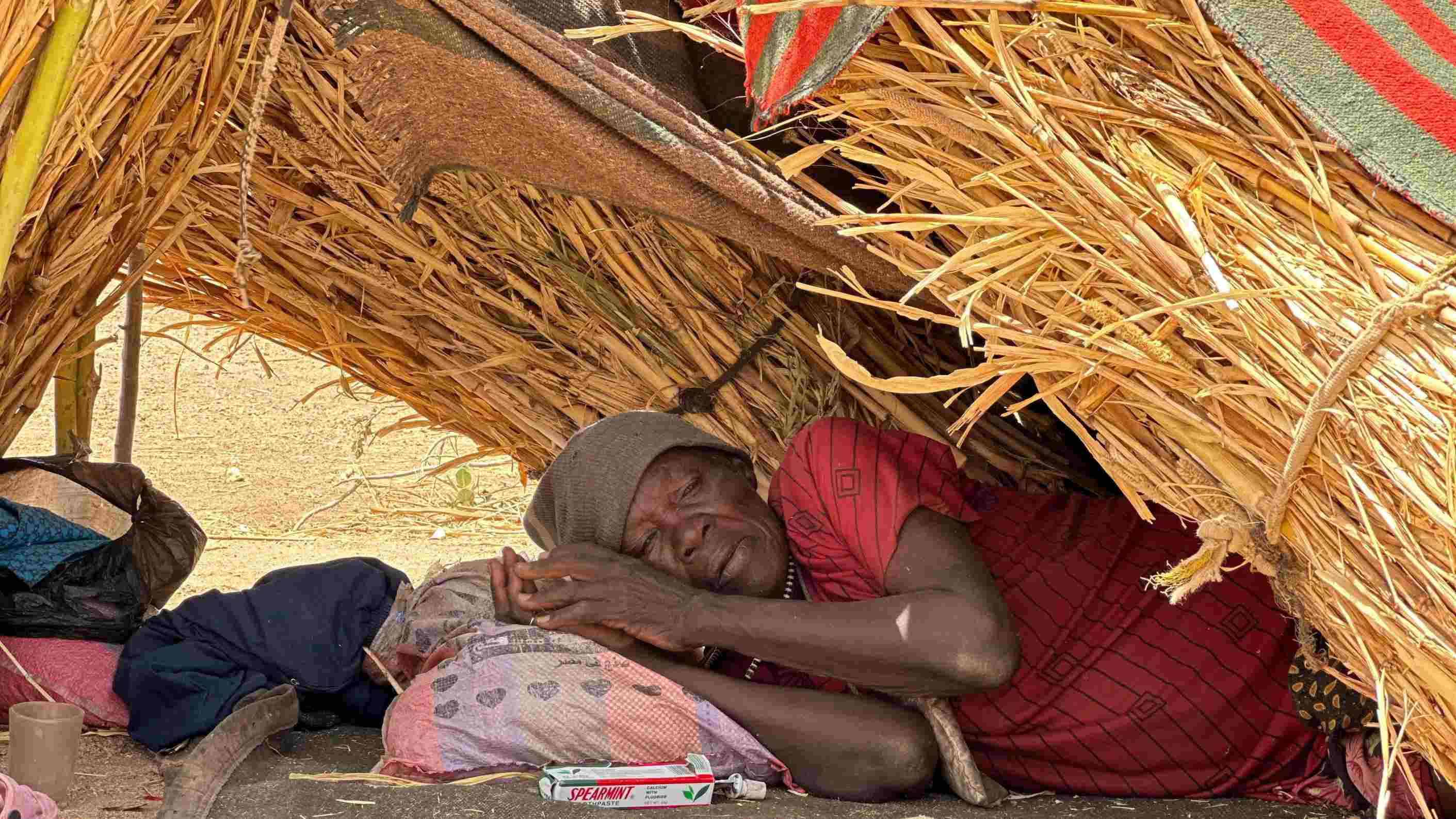Families in Sudan’s Darfur region are facing one of the worst humanitarian disasters in the world, as thousands flee violent attacks with nothing but desperation to survive on.
Aid agencies say some people are eating charcoal and leaves as they make the 40-kilometre journey from El-Fasher to Tawila under deadly heat and constant fear.
"The stories we've been hearing are truly horrific," said Noah Taylor, head of operations for the Norwegian Refugee Council. He shared the disturbing reports during an interview with the BBC's Newsday programme.
Many of those fleeing were living in Zamzam camp, near El-Fasher, before it was attacked earlier this month.
The paramilitary Rapid Support Forces (RSF) reportedly stormed the camp, forcing tens of thousands of people to leave their makeshift homes.
According to Taylor, people escaping to Tawila are dying "on arrival."
He warned that those making the journey are dying from thirst in the extreme heat.
"We've heard stories there are still bodies on the road between el-Fasher and Tawila," Taylor said.
One of the most disturbing accounts involved a young girl who travelled alone from El-Fasher.
"We spoke to a family who told us of a girl who had walked on foot by herself from El-Fasher, was repeatedly raped along the journey, and then died of her wounds when she arrived in Tawila."
El-Fasher remains the last major city in Darfur under the control of Sudan’s army and its allies.
The RSF, which has been at war with the army for the past two years, has been accused of committing atrocities during its offensive.
Aid agencies say the fighting has created the worst humanitarian crisis globally, with 150,000 people reported dead and 13 million displaced.
The Zamzam camp, home to many who had already been forced to flee earlier Darfur conflicts, was described as completely destroyed.
"Systematic destruction through arson of homes” and "aid facilities" was how Nathaniel Raymond from the Yale School of Public Health's Humanitarian Research Lab explained the situation.
He added that many people were dying of starvation along the escape routes.
Despite the urgent need for food and water, humanitarian groups are struggling to deliver aid.
The UN has had to cut food supplies in areas affected by famine, citing a lack of funding.
Taylor said the town of Tawila, now hosting up to 150,000 people, "was struggling to cope" and had "very little in the way of food" or clean water.
The RSF has been accused of targeting non-Arab residents during the conflict. Last week, the UK Foreign Minister David Lammy said the attacks "displayed the hallmarks of ethnic cleansing and may amount to crimes against humanity."
He called on both sides to guarantee the safety of aid workers so that emergency relief could be delivered without delays.
The United Nations also raised alarm about rising deaths in North Darfur, reporting that at least 481 people had been killed in the region around el-Fasher since April 10.
However, the organisation warned that the actual death toll was likely much higher.
Volker Türk, the UN Human Rights Chief, expressed concern over the complete breakdown of systems meant to support the victims.
"The systems to assist victims in many areas are on the verge of collapse, medical workers are themselves under threat, and even water sources have been deliberately attacked," he said.
He also noted "widespread reports of sexual violence," echoing the devastating story shared by Taylor and others working on the ground.
The aid community is struggling to document the full scale of abuse as communications remain difficult in many affected areas.
Meanwhile, violence continues to spread across other regions in Sudan.
In West Kordofan province, at least 74 people were reported killed when the RSF attacked the village of al-Za'afah, according to the Sudan Doctors Network.
Those who fled Zamzam told the BBC that their shelters had been set ablaze and they had come under gunfire.
The RSF has admitted to attacking the camp but denies committing atrocities.
As displaced people reach Tawila, many are finding no relief—only overcrowded shelters, lack of supplies, and ongoing trauma.
"There is very little in the way of food, there is very little in the way of water," Taylor said, highlighting the growing burden on the small town.
For families who had already lived through decades of violence, the renewed attacks and harsh journey have turned an already difficult life into one of hopelessness and fear.
Many have nothing left, and the help they desperately need is slowing down just as the crisis deepens.

